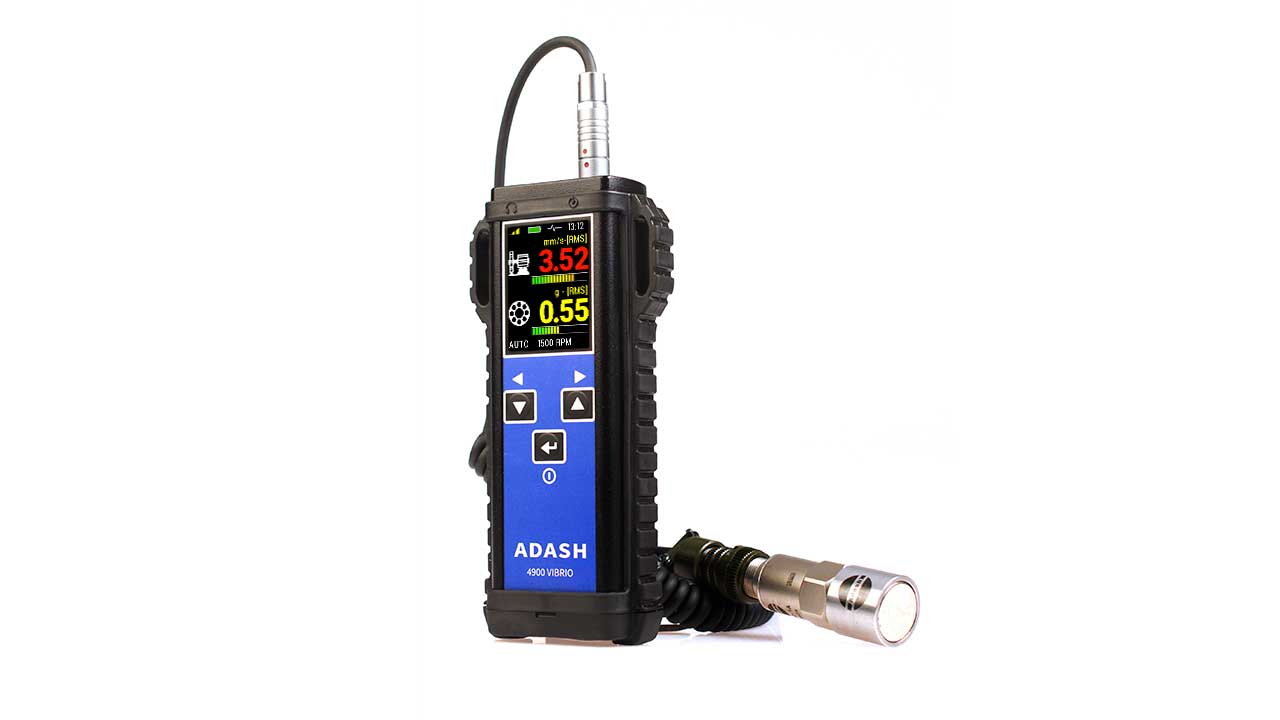
Vibration meter, Vibrometer
A large group of customers interested in our predictive a proactive maintenance, vibration measurement and vibration monitoring products are becoming familiar with this topic and are looking for more information. For them we have prepared this article, which explains the basics of vibrometers, their uses and applications.
What is a vibrometer?
A vibrometer is an instrument used to measure vibration. Vibration is the oscillation of a mass around its equilibrium position. Vibrometers are commonly used to measure vibration in a variety of applications such as industrial machinery, motors, electronic equipment, construction and more.
Types of vibrometers
There are different types of vibrometers that can measure different aspects of vibration such as amplitude (range of movement), frequency (rate of repetition of vibration) and more. Vibrometers can also be used to analyse and monitor the condition of machinery, equipment or structures based on vibration, helping to prevent potential failures and optimise performance. Various types of vibrometers can be found in scientific, industrial and engineering environments where it is important to measure and analyse vibration for safety, reliability and maintenance purposes.
Principles of Vibrometers
As a measuring instrument, a vibrometer works by measuring the vibrations of structures or equipment. It focuses on two basic parameters: frequency and amplitude of vibration. Frequency characterises the rate of oscillation, while amplitude indicates the range of movement. In summary, within vibrometry we can generally analyse
- Vibration frequency
- Amplitude of motion
- Analyse resonances
- Analyse vibration spectra
- Monitor changes in vibration over time (trend vibration data)
Diagnosing and detecting problems using a vibrometer
Vibrometers are an invaluable tool for early machine fault diagnosis. By analysing resonances, instabilities or unwanted vibrations, potential problems can be detected before they develop into major failures that cause prolonged downtime and usually significant costs associated with production shutdowns. In this way, vibrometers help to minimize downtime and increase the reliability of industrial production systems.
Applications in various industries
Vibrometers play an indispensable role in a wide range of fields and industries. In industrial manufacturing, vibrometers become a key element in monitoring machinery and equipment, ensuring production quality and minimising the risk of breakdowns. In the energy sector, vibrometers specialise in monitoring generators and turbines, where they detect unwanted vibrations and prevent failures. In the petrochemical industry, they are becoming an essential tool for monitoring rotating equipment, pumps and compressors, resulting in optimised performance and extended equipment life. Vibration meters can also be found in the aerospace industry, where they are essential for monitoring the condition of aircraft engines, accurately measuring vibration and enabling predictive maintenance - essential for the safety and reliability of aircraft. Whatever the industry, vibration meters provide timely and accurate information to support predictive maintenance, minimise downtime and increase the overall reliability of industrial systems.


